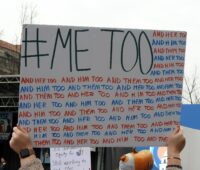Category
The viral spread of false, misleading, and inaccurate information has increasingly been seen as a threat to democracy globally, leading to dedicated focus from academics, pundits, and policymakers on the topic of mis- and disinformation and the impact of social media platforms on public discourse. In response, there has been a rising wave of organizations, tools, and apps based around fact-checking, media literacy, and the debunking of conspiracy theories. However, not only do technological and social efforts often fail to correct the deep-seated mechanisms of disinformation, polarization, and extremist belief, they seem in some cases to reaffirm and calcify the divisions they aim to erase.
Central to the study of mis- and disinformation are questions of how and under what circumstances—social, cultural, historical, and technical—information is deemed “truthful,” “factual,” or “authentic.” Focusing on these deeper questions recognizes “fake news” as a symptom, not the underlying cause of information disorder. What leads people to believe certain facts or, even knowing the facts to be misrepresented, believe in the institution or individual sharing them?
Born from a Media & Democracy workshop, this essay collection emphasizes that authenticity is always relational: It is determined by someone, about someone. Shifting beyond issues of objective fact, it looks instead at questions of authority, performance, and mechanism: Who decides what is authentic? Who is allowed to be authentic? Who is believable, and how do questions of believability intersect with questions of race, gender, and class? How is authenticity different online vs. offline? Who benefits from authentication? Who shoulders the burden of proof? This essay series explores how a stronger understanding of authenticity and realigning our focus beyond disinformation might lead to more robust interventions in an increasingly fractured and polarized political landscape.
This series has been curated by Jason Rhody, program codirector of Media & Democracy; Mike Miller, program codirector of Media & Democracy and program codirector of Just Tech; and Penelope Weber, projects coordinator for Media & Democracy and Digital Culture programs.































